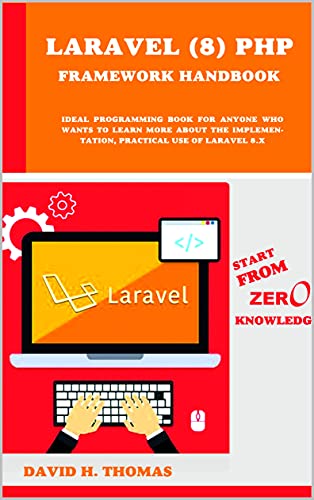Download Hypermodern Python Tooling by Claudio Jolowicz in EPUB
If you’ve picked up this book, you likely have Python installed on your machine already. Most common operating systems ship with a python or python3 command.
This can be the interpreter used by the system itself or a shim that installs Python for you when you invoke it for the first time.
Why dedicate an entire chapter to the topic if it’s so easy to get Python onto a new machine?
The answer is that installing Python for long-term development can be a complex matter, and there are several reasons for this:
You generally need multiple versions of Python installed side-by-side. (If you’re wondering why, we’ll get to that shortly.)
There are a few different ways to install Python across the common platforms, each with unique advantages, tradeoffs, and sometimes pitfalls.
Python is a moving target: You need to keep existing installations up-to-date with the latest maintenance release, add installations when a new feature version is published, and remove versions that are no longer supported.
You may even need to test a prerelease of the next Python.
You may want your code to run on multiple platforms. While Python makes it easy to write portable programs, setting up a developer environment requires some familiarity with the idiosyncrasies of each platform.
You may want to run your code with an alternative implementation of Python.1
In this first chapter, I’ll show you how to install multiple Python versions on some of the major operating systems in a sustainable way, and how to keep your little snake farm in good shape.a
Book description
Keeping up with the Python ecosystem can be daunting. Its developer tooling doesn't provide the same out-of-the-box experience native to languages like Rust and Go. When it comes to long-term project maintenance or collaborating with others, every Python project faces the same problem: how to build reliable workflows beyond local development while staying in sync with the evolving ecosystem.
With this hands-on guide, Python developers will learn how to forge the moving parts of a Python project into an easy-to-use toolchain, using state-of-the-art tools including Poetry, GitHub Actions, Dependabot, pytest, mypy, Flake8, and more. Author Claudio Jolowicz shows you how to create robust Python project structures, complete with unit tests, static analysis, code formatting, type checking, and documentation, as well as continuous integration and delivery.
You'll learn how to:
Create open source projects with state-of-the-art infrastructure
Build a custom infrastructure for all Python projects in a company or team
Improve and modernize the infrastructure of an existing Python project
Evaluate modern Python tooling for adoption in existing projects
Use tools for packaging and dependency management
Automate releases, checks and tasks, dependency updates, Python syntax upgrades, and releases to PyPI and TestPyPI
And much more
Table of contents
1. Installing Python
Supporting Multiple Versions of Python
Locating Python Interpreters
Installing Python on Windows
The Python Launcher for Windows
Installing Python on macOS
Homebrew Python
The python.org Installers
Installing Python on Linux
Fedora Linux
Ubuntu Linux
Other Linux Distributions
The Python Launcher for Unix
Installing Python with Pyenv
Installing Python from Anaconda
Summary
2. Python Environments
Contents of a Python Environment
The Interpreter
Python Modules
Entry-point Scripts
The Layout of Python Installations
The Per-User Environment
Virtual Environments
Activation Scripts
Installing Applications with Pipx
Finding Python Modules
Module Objects
The Module Cache
Module Specs
Finders and Loaders
The Module Path
Site Packages
Summary
3. Python Packages
An Example Application
Why Packaging?
Packaging in a Nutshell
Installing Projects from Source
Building Packages with build
Uploading Packages with Twine
The pyproject.toml File
Build Frontends and Build Backends
Wheels and Sdists
Project Metadata
Naming Projects
Versioning Projects
Single-Sourcing the Project Version
Entry-point Scripts
Entry Points
Authors and Maintainers
The Description and README
Keywords and Classifiers
The Project URLs
The License
The Required Python Version
Dependencies and Optional Dependencies
Summary
4. Dependency Management
Example: Consuming an API with HTTPX
Example: Console Output with Rich
Specifying Dependencies for a Project
Version Specifiers
Extras and Optional Dependencies
Environment Markers
Development Dependencies
Requirements Files
Locking Dependencies
Freezing Requirements with pip
Pinning Dependencies with pip-tools
Summary
5. Managing Projects with Poetry
Installing Poetry
Creating a Project
The Project Metadata
The Package Contents
The Source Code
Managing Dependencies
Caret Constraints
Extras and Environment Markers
The Lock File
Updating Dependencies
Managing Environments
Development Dependencies
Package Repositories
Extending Poetry with Plugins
Generating Requirements Files with the Export Plugin
Deploying Environments with the Bundle Plugin
The Dynamic Versioning Plugin
Summary
6. Testing with pytest
Writing a Test
Designing for Testability
The unittest Framework
The pytest Framework
Advanced Techniques for Fixtures
Extending pytest with Plugins
Summary
7. Measuring Coverage with Coverage.py
The standard trace module
Using Coverage.py
Measuring across Multiple Environments
Parallel Coverage
Measuring in Subprocesses
Setting a Coverage Target
Summary
About the Author
About the book:
Title: Hypermodern Python Tooling
Author(s): Claudio Jolowicz
Release date: April 2024
File : EPUB, 12MB
Free Download the Book: Download Hypermodern Python Tooling by Claudio Jolowicz in PDF
PS: Share the link with your friends
If the Download link is not working, kindly drop a comment below, so we'll update the download link for you.
Happy downloading!








